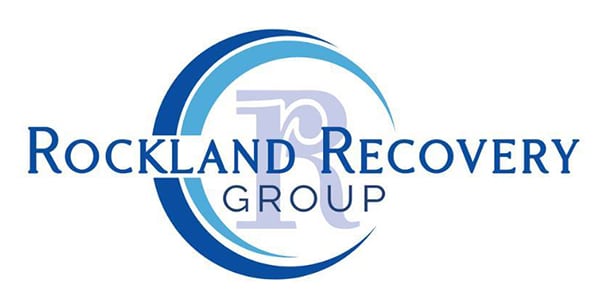Dialectical behavior therapy (DBT) is a form of talk therapy that was originally developed to treat borderline personality disorder but has been earning attention for its potential to treat other mental health conditions, including bipolar disorder. At Rockland Recovery, we believe in utilizing evidence-based treatments for mental health, and the effectiveness of DBT for bipolar is promising.
Jump to Section
An Overview of Bipolar Disorder
Bipolar disorder is a mental health condition that affects millions of people. The main characteristic of bipolar disorder is extreme mood swings, ranging from emotional highs called mania (or hypomania) to severe lows of depression.
Bipolar disorder is a complex and difficult-to-understand mental health condition due to how it presents itself. An individual with bipolar disorder will have periods of time when neither mania nor depression are factors in their life. Their day-to-day life will feel relatively level, which can make it difficult for outsiders to truly understand what the person is experiencing when they have a bipolar episode.
Symptoms of bipolar disorder may last several days to weeks or even months. Depressive episodes typically last longer than mania. Most people with bipolar disorder experience cycles of episodes, often triggered by stress or change. Changes in season, especially the transition from summer into fall, and fall into winter, often see a spike in bipolar episodes.
Bipolar disorder is marked by extreme shifts in mood. These shifts can significantly impact the quality of life. Relationships and job performance often suffer as a result.
Currently, there are a number of effective treatments for bipolar disorder, including psychotherapy, medications, and lifestyle changes. DBT is an option, and it’s one that is proving to be very effective in helping those with bipolar disorder manage their symptoms and take control of their mental health.
What is Dialectical Behavior Therapy?
Dialectical behavior therapy is a structured approach to building skills in mindfulness, emotional regulation, distress tolerance, and interpersonal effectiveness.
Dialectical behavior therapy (DBT) is a form of cognitive behavior therapy (CBT). As a type of psychotherapy, the approach of DBT is more focused on managing intense emotional experiences or responses. Through DBT, individuals with bipolar disorder and other mental health conditions can achieve emotional regulation.
This involves building skills in the areas of mindfulness, distress tolerance, and interpersonal effectiveness. Instead of trying to suppress or avoid difficult and intense emotions, DBT helps the individual learn how to accept them and cope in a healthy way.
Treating Bipolar with DBT
Coping with the intense highs and lows of bipolar disorder is a difficult challenge. Episodes of mania and depression can have a significant effect on a person’s overall quality of life, affecting every area of daily living. While bipolar disorder can be treated with the use of medications, other forms of psychotherapy, and lifestyle changes, learning how to cope with emotional changes is crucial.
This is where DBT becomes one of the most helpful approaches for the treatment of bipolar disorder. The foundation of DBT focuses on helping individuals develop coping skills to navigate and manage the extreme shifts of bipolar disorder.
DBT doesn’t encourage pushing away or minimizing the intensity of mania and mood disorders. Instead, it helps the person accept that these episodes are part of their life. With this acknowledgment, thought patterns can be reframed, self-acceptance grows, and it becomes possible to find balance in what often feels like emotional chaos with bipolar disorder.
The four primary skills that patients develop with DBT are distress tolerance, emotional regulation, interpersonal effectiveness, and mindfulness which enables them to be fully present in the moment.
During DBT for bipolar disorder, individual therapy sessions make up the core of treatment, however, group skills training may also be included if it’s of benefit to the patient. Therapy sessions are typically scheduled once or twice a week, with the individual working on the skills they’re learning in between sessions.
Challenges of DBT for Bipolar Treatment
DBT is an evidence-based approach to bipolar treatment that has been shown to be effective in helping individuals manage the symptoms of bipolar disease. DBT therapy is also showing positive results in reducing self-harm and suicidal behaviors in those with BPD. Self-harm is a significant risk for those with BPD, making DBT a very important treatment option.
However, there isn’t a one-size-fits-all approach to bipolar disorder treatment, and there can be challenges with DBT.
Bipolar disorder is an extremely complex mental health condition. It’s characterized by rapid, often unpredictable shifts in mood. This can make it difficult to apply learned DBT skills without proper mental health support. It’s important to follow through on all DBT treatment sessions and seek additional help as needed, especially if depressive episodes bring thoughts of self-harm.
If you or a loved one are in need of additional resources on bipolar disorder or other mental health conditions, the Substance Abuse and Mental Health Services Administration offers resources, including an online directory of providers and a 24-hour National Helpline.
Finding DBT at a Bipolar Disorder Treatment Center in Massachusetts
DBT can be highly effective in treating bipolar disorder, but it’s a specialized form of mental health care that requires working with a trained, licensed mental health professional.
At Rockland Recovery, our team offers the expertise, professionalism, and compassion to help you manage DBT and regain control of your life. In addition to DBT, we offer various mental health treatment programs to meet your individual needs. We encourage you to contact us at Rockland Recovery for a consultation. Contact us at 888-299-4833 today.




